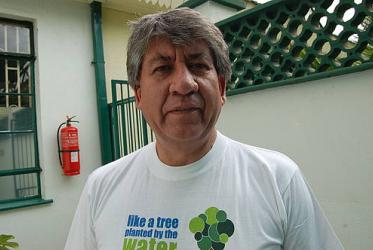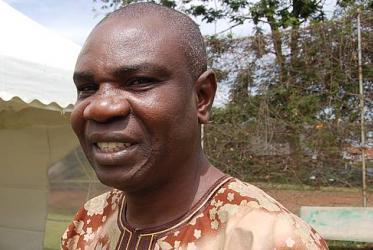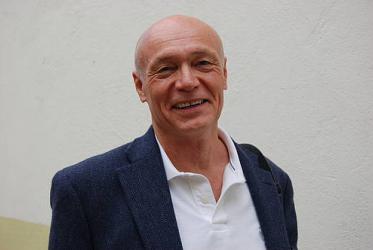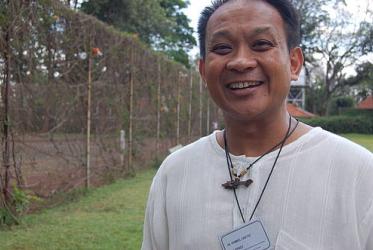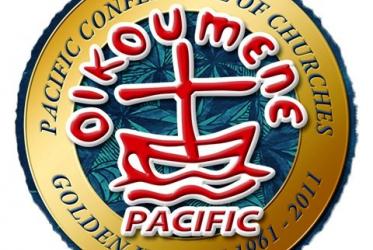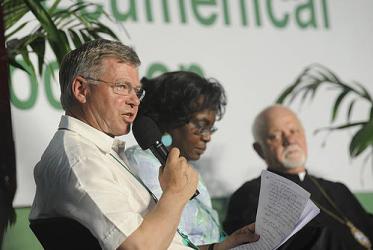Displaying 601 - 620 of 757
Ecumenical Water Network breaks new ground
03 November 2011
Seeking government partnership for water justice
31 October 2011
Steering for human rights to water
28 October 2011
Sustainable water projects need ownership
28 October 2011
Water: a political issue needing political solution
27 October 2011
Water crisis in Tuvalu
13 October 2011
WCC Executive Committee in Ethiopia exposed to famine situation
13 September 2011
Golden anniversary of the Pacific Conference of Churches
01 September 2011
Christian youth to be trained for eco-justice
07 July 2011
Water conflicts pose threat to global peace
04 July 2011
What does “God's security” look like?
24 May 2011
Lenten campaign focuses on water and just peace
03 March 2011


